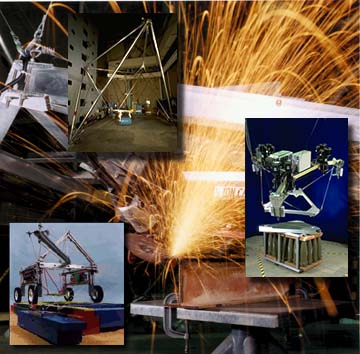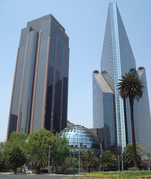Portal:Business
 Business is the practice of making one's living or making money by producing or buying and selling products (such as goods and services). It is also "any activity or enterprise entered into for profit." A business entity is not necessarily separate from the owner and the creditors can hold the owner liable for debts the business has acquired. The taxation system for businesses is different from that of the corporates. A business structure does not allow for corporate tax rates. The proprietor is personally taxed on all income from the business. A distinction is made in law and public offices between the term business and a company such as a corporation or cooperative. Colloquially, the terms are used interchangeably. (Full article...) Economics (/ˌɛkəˈnɒmɪks, ˌiːkə-/) is a social science that studies the production, distribution, and consumption of goods and services. Economics focuses on the behaviour and interactions of economic agents and how economies work. Microeconomics analyses what is viewed as basic elements within economies, including individual agents and markets, their interactions, and the outcomes of interactions. Individual agents may include, for example, households, firms, buyers, and sellers. Macroeconomics analyses economies as systems where production, distribution, consumption, savings, and investment expenditure interact, and factors affecting it: factors of production, such as labour, capital, land, and enterprise, inflation, economic growth, and public policies that have impact on these elements. It also seeks to analyse and describe the global economy. (Full article...)  An Inquiry into the Nature and Causes of the Wealth of Nations is the magnum opus of the Scottish economist Adam Smith, published on March 9, 1776 during the Scottish Enlightenment. It is a clearly written account of political economy at the dawn of the Industrial Revolution, and is widely considered to be the first modern work in the field of economics. The work is also the first comprehensive defense of free market policies. It is broken down into five books between two volumes. The Wealth of Nations was written for the average educated individual of the 18th century rather than for specialists and mathematicians. There are three main concepts that Smith expands upon in this work that form the foundation of free market economics: The Division of Labor, The Pursuit of Self Interest, and The Freedom of Trade. The Wealth of Nations was published in 1776, during the Age of Enlightenment. It influenced not only authors and economists, but governments and organisations. For example, Alexander Hamilton was influenced in part by The Wealth of Nations to write his Report on Manufactures, in which he argued against many of Smith's policies. Interestingly, Hamilton based much of this report on the ideas of Jean-Baptiste Colbert, and it was, in part, to Colbert's ideas that Smith wished to respond with The Wealth of Nations. Many other authors were influenced by the book and used it as a starting point in their own work, including Jean-Baptiste Say, David Ricardo, Thomas Malthus and, later, Karl Marx and Ludwig von Mises. The Russian national poet Aleksandr Pushkin refers to The Wealth of Nations in his 1833 verse-novel Eugene Onegin. Irrespective of historical influence, however, The Wealth of Nations represented a clear leap forward in the field of economics, similar to Sir Isaac Newton's Principia Mathematica for physics or Antoine Lavoisier's Traité Élémentaire de Chimie for chemistry. The Wealth of Nations is also important in a Scottish linguistic context on account of the fact the book is written in English and not in Scots Language, a somewhat rare occurrence for the time. Smith addresses in The Wealth of Nations a problem that was torturing the best economic minds of his day. This problem was rooted in the means by which objects are valued. The two predominant theories of value in Smith's time were the so-called "Practical Theory of Value" and the labor theory of value, as delineated later by David Ricardo.
The economy of Poland is a high-income, industrialized, developed market with a mixed economy that serves as the sixth-largest in the European Union by nominal GDP and fifth-largest by GDP (PPP). Poland boasts the extensive public services characteristic of most developed economies. Since 1988, Poland has pursued a policy of economic liberalisation but retained an advanced public welfare system. It is classified as a high-income economy by the World Bank, ranking 20th worldwide in terms of GDP (PPP), 21st in terms of GDP (nominal), and 21st in the 2023 Economic Complexity Index. Among OECD nations, Poland has a highly efficient and strong social security system; social expenditure stood at roughly 22.7% of GDP. The largest component of Poland's economy is the service sector (62.3%), followed by industry (34.2%) and agriculture (3.5%). Following the economic reform of 1989, Poland's external debt has increased from $42.2 billion in 1989 to $365.2 billion in 2014. Poland shipped US$224.6 billion worth of goods around the globe in 2017, while exports increased to US$221.4 billion. The country's top export goods include machinery, electronic equipment, vehicles, furniture, and plastics. Poland was the only economy in the EU to avoid a recession through the 2007–08 economic downturn. (Full article...) "If competition is contrasted with energetic co-operation in unselfish work for the public good, then even the best forms of competition are relatively evil; while its harsher and meaner forms are hateful. And in a world in which all men were perfectly virtuous, competition would be out of place; but so also would be private property and every form of private right. Men would think only of their duties; and no one would desire to have a larger share of the comforts and luxuries of life than his neighbours. Strong producers could easily bear a touch of hardship; so they would wish that their weaker neighbours, while producing less should consume more. Happy in this thought, they would work for the general good with all the energy, the inventiveness, and the eager initiative that belonged to them; and mankind would be victorious in contests with nature at every turn. Such is the Golden Age to which poets and dreamers may look forward. But in the responsible conduct of affairs, it is worse than folly to ignore the imperfections which still cling to human nature. History in general, and especially the history of socialistic ventures, shows that ordinary men are seldom capable of pure ideal altruism for any considerable time together; and that the exceptions are to be found only when the masterful fervour of a small band of religious enthusiasts makes material concerns to count for nothing in comparison with the higher faith."
The following are images from various business-related articles on Wikipedia.
Urgent and important articles are bold
The following Wikimedia Foundation sister projects provide more on this subject:
Discover Wikipedia using portals |






































